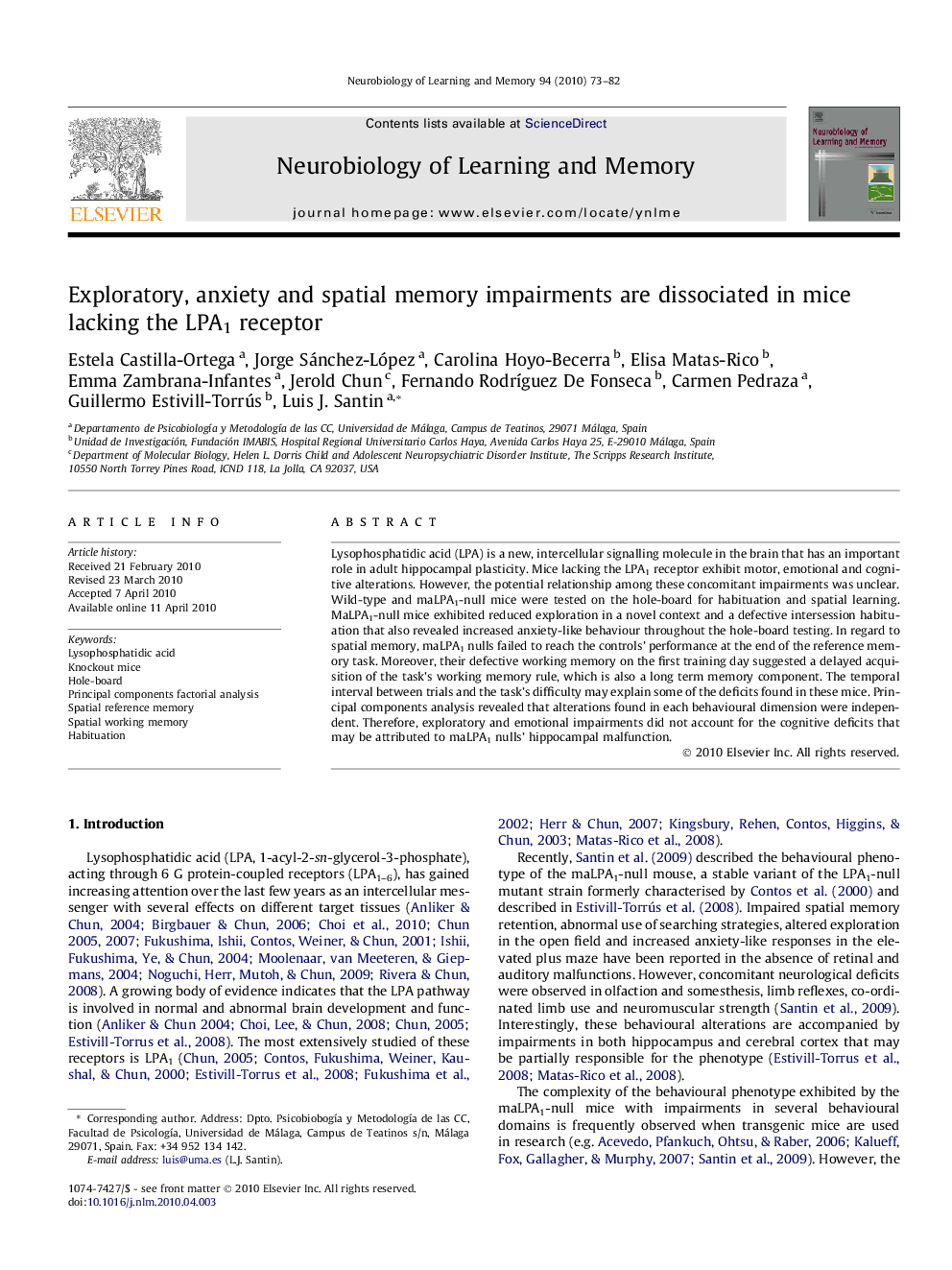| Article ID | Journal | Published Year | Pages | File Type |
|---|---|---|---|---|
| 936866 | Neurobiology of Learning and Memory | 2010 | 10 Pages |
Lysophosphatidic acid (LPA) is a new, intercellular signalling molecule in the brain that has an important role in adult hippocampal plasticity. Mice lacking the LPA1 receptor exhibit motor, emotional and cognitive alterations. However, the potential relationship among these concomitant impairments was unclear. Wild-type and maLPA1-null mice were tested on the hole-board for habituation and spatial learning. MaLPA1-null mice exhibited reduced exploration in a novel context and a defective intersession habituation that also revealed increased anxiety-like behaviour throughout the hole-board testing. In regard to spatial memory, maLPA1 nulls failed to reach the controls’ performance at the end of the reference memory task. Moreover, their defective working memory on the first training day suggested a delayed acquisition of the task’s working memory rule, which is also a long term memory component. The temporal interval between trials and the task’s difficulty may explain some of the deficits found in these mice. Principal components analysis revealed that alterations found in each behavioural dimension were independent. Therefore, exploratory and emotional impairments did not account for the cognitive deficits that may be attributed to maLPA1 nulls’ hippocampal malfunction.
